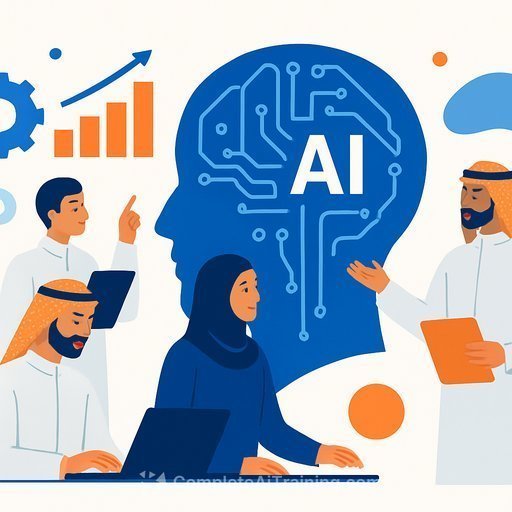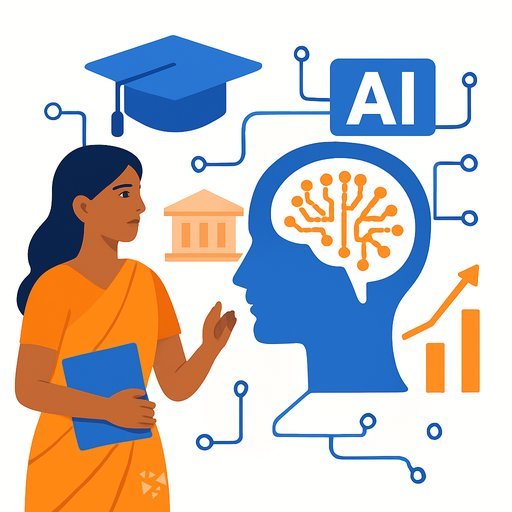AI Strategy in Malta Needs Constant Updates, Says MDIA CEO
The CEO of the Malta Digital Innovation Authority (MDIA), Kenneth Brincat, emphasizes that artificial intelligence requires a strategy that is regularly updated to stay relevant and effective. Malta's National AI Strategy, first launched in 2019, is currently undergoing a Vision Realignment to reflect AI’s expanded capabilities and shifting societal roles.
Brincat explains that the original focus was on AI as a driver of economic growth. Today, the approach is evolving to position AI as a tool that supports societal wellbeing and quality of life, alongside economic development. This shift reflects broader expectations for AI beyond pure financial gain.
Annual Updates to Keep Pace with AI Advances
The MDIA has built mechanisms to revise the National AI Strategy annually or biennially. Given the fast changes in AI, such frequent reassessments are necessary. The strategy initially prioritized public administration to encourage follow-on adoption in the private sector. Over 80% of its measures have been implemented, though some have become obsolete due to AI’s evolution, such as those relating to language processing before the rise of large language models.
The strategy covers diverse fields including sports, culture, arts, and health. Brincat acknowledges challenges in areas like AI’s impact on creative industries and films, which are addressed in updated policy measures. A government pilot program applying AI to create personalized learning plans for students has shown promising results.
AI in Education: Personalized Learning Takes Off
The Ministry for Education conducted a pilot project between 2023 and 2024 focused on tailoring learning outcomes for individual students, starting with mathematics. This project aligns with calls to leverage AI in education for personalized programs. The success of this initial phase has encouraged plans to expand AI-supported customization to other subjects.
With the EU AI Act coming into effect next year, AI applications in education will require compliance assessments. The act categorizes AI uses by risk level, with education-related AI that affects access to learning or career progression flagged as high-risk. This classification means stricter oversight is necessary to safeguard fundamental rights.
Job Displacement and AI’s Role in the Workforce
Brincat acknowledges the risk of job displacement due to AI but expects shifts rather than outright replacements. He compares it to the banking sector’s experience with ATMs: some roles disappear while new ones emerge, especially in technology and compliance. The public sector is also incorporating AI, which may reduce some jobs but increase demand for skilled workers managing these systems.
Malta’s Digital Innovation Landscape Beyond AI
Despite being known as "Blockchain Island," blockchain technology represents less than 5% of MDIA’s focus. Brincat attributes this to a trust deficit linked to cryptocurrency associations, despite blockchain’s security benefits. Interest in the Metaverse and NFTs has waned following significant financial losses, and Malta currently prioritizes other digital innovation areas such as quantum computing and cybersecurity.
Brincat urges caution in investing in trendy technologies and stresses the importance of building a compliance-focused jurisdiction aligned with long-term national goals. He notes that while NFTs and the Metaverse once attracted attention, their sustainability and economic impact remain questionable.
Environmental Considerations for Emerging Technologies
Malta is mindful of the environmental impact of technology infrastructure. AI computing systems consume large amounts of energy and water, particularly for cooling. The MDIA’s Digital Innovation Hub (DiHubMT) uses energy-saving materials and lighting. Cooling systems for high-performance computers will be powered by solar panels, reflecting a commitment to climate-conscious operations.
Supporting Start-ups and SMEs Through Digital Innovation Hub
The DiHubMT, Malta’s European Digital Innovation Hub, opened in late 2024 and already supports around 30 start-ups. It provides access to facilities, labs, funding opportunities, and mentorship programs focused on both technology and entrepreneurial skills. The hub fosters a collaborative environment for SMEs, investors, academics, and entrepreneurs to advance digital innovation in Malta.
By combining regulation with active promotion and support, the MDIA aims to create a vibrant ecosystem that drives sustainable growth in digital innovation.
For executives and strategists interested in understanding AI’s evolving role and how to build adaptable strategies, it is crucial to monitor policy updates and emerging technologies while balancing economic, social, and environmental factors.
Explore practical AI training and courses to stay ahead in this dynamic field at Complete AI Training.
Your membership also unlocks:









